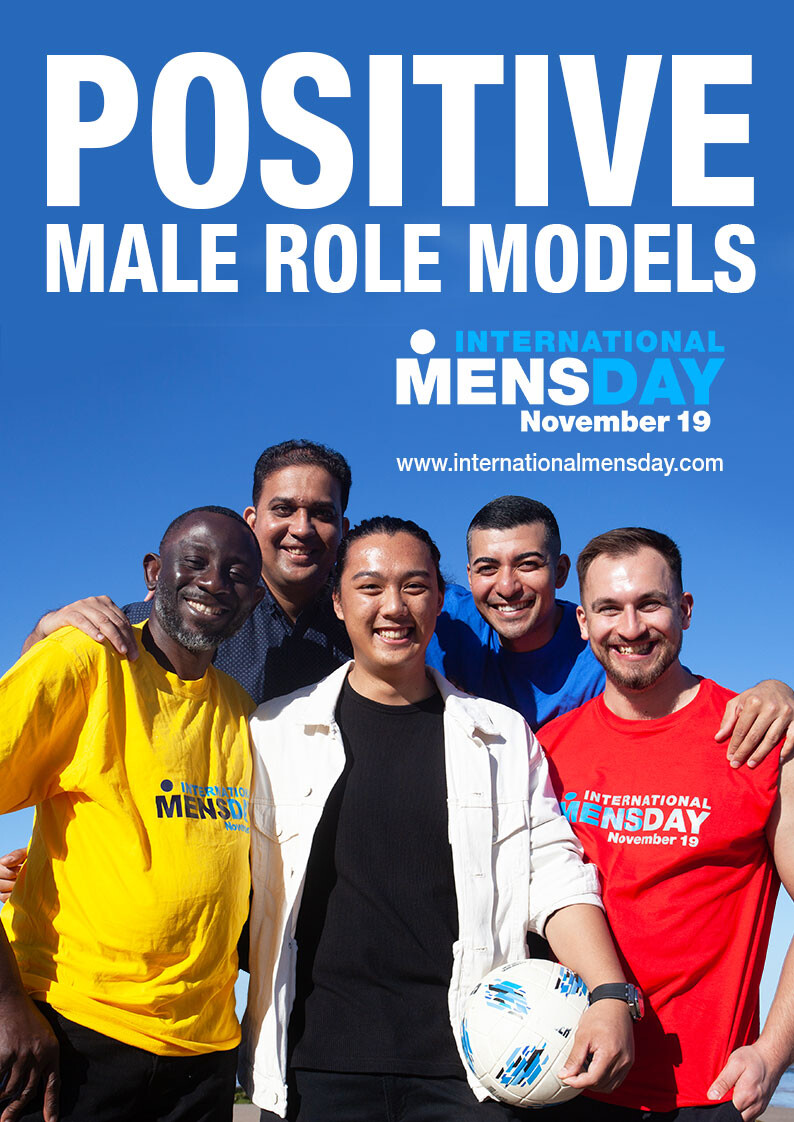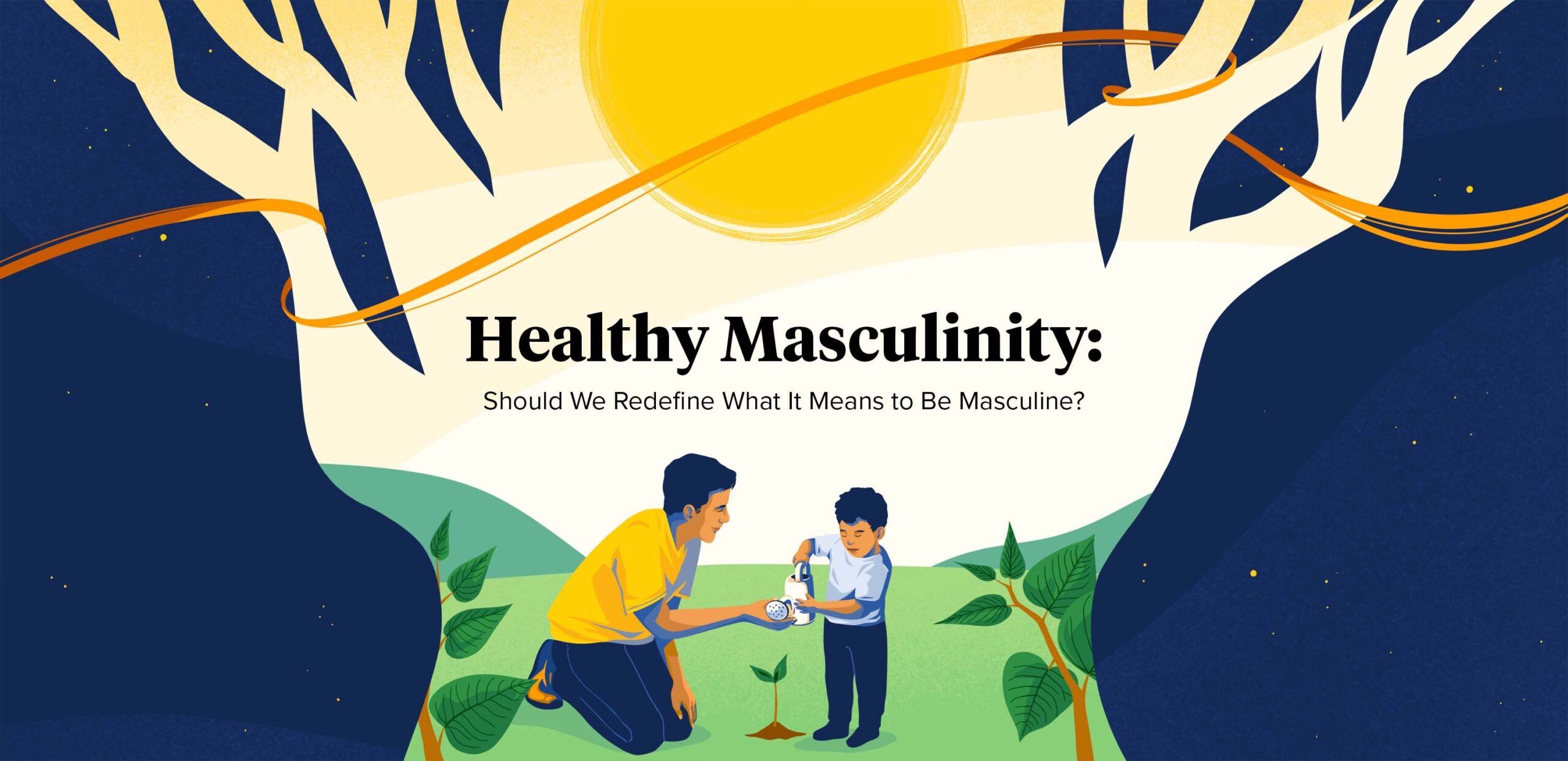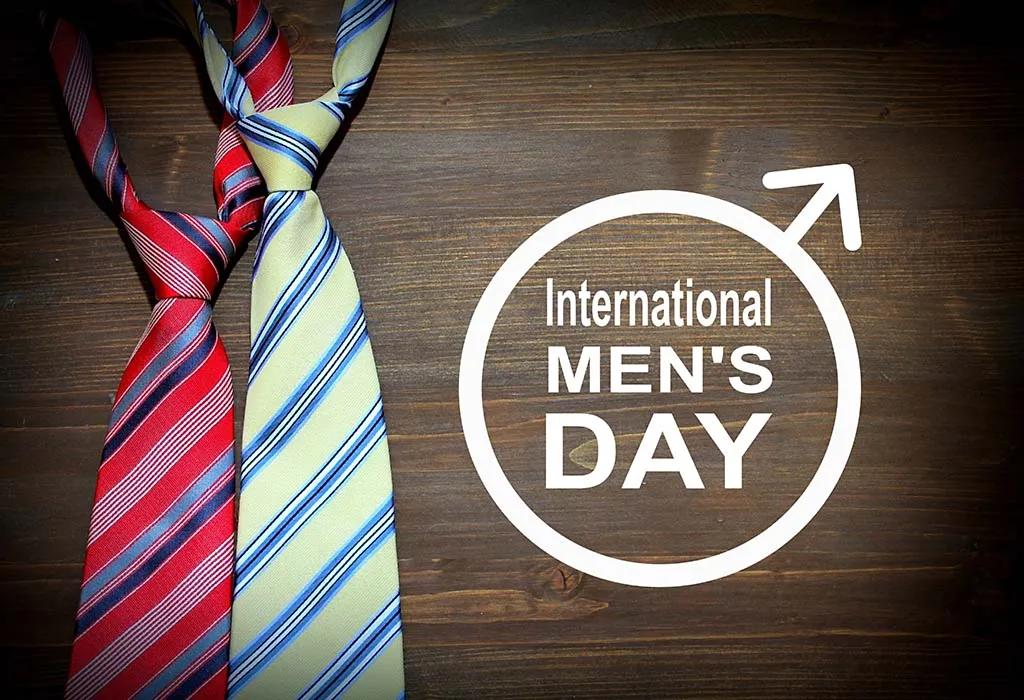Table of Contents
Introduction to International Men’s Day
Did you know there’s a special day dedicated to celebrating men, their contributions, and their well-being? It’s called International Men’s Day, and it’s not just a day for men to sit back and relax—it’s an opportunity to raise awareness, spark conversations, and, most importantly, support each other as a community. This day is about highlighting the positive roles men play in society while addressing the challenges they face. In this article, we’re going to explore everything about International Men’s Day, from its origins to how you can be part of the movement.
When Is International Men’s Day?

Image Source: FreePik
Every year, International Men’s Day is celebrated on November 19th1. It may not be as widely known as other international observances, but it has been growing in popularity and significance. Originating in the late 1990s, this day was established to bring attention to the important contributions of men to society, while also emphasizing the need to improve men’s health, relationships, and overall well-being.
Why Do We Celebrate International Men’s Day?
In a world where the focus often rests on empowering women and eliminating gender disparities, International Men’s Day aims to balance the narrative. It’s about acknowledging that men, too, face unique challenges, whether it’s health-related issues, stereotypes, or societal expectations. It is a reminder that gender equality includes valuing men’s contributions and understanding their struggles. The day gained significant traction in 1999 when Dr. Jerome Teelucksingh from Trinidad and Tobago revived the observance on November 19. This date was chosen to honor Dr. Teelucksingh’s father’s birthday and a notable event in Trinidadian history when a soccer team united the nation in their World Cup qualification quest2.
The Core Themes and Objectives of International Men’s Day
Since its revival, the day has evolved to focus on six key pillars: promoting positive male role models, celebrating men’s contributions to society and family life, addressing men’s health issues, highlighting discrimination against men, improving gender relations, and creating a safer world for all3. These objectives underscore the day’s significance in fostering conversations about gender equality, breaking down stereotypes, and addressing the unique challenges men face in contemporary society.
Promoting Positive Male Role Models

Image Source: Google
The 2024 theme for International Men’s Day, “Positive Male Role Models,” aims to spotlight men who exemplify admirable qualities and make meaningful contributions to society12. This theme encourages the recognition and celebration of men who demonstrate integrity, compassion, and responsibility in their daily lives, serving as inspirations for others. Positive male role models play a crucial role in shaping the attitudes and behaviors of younger generations. They challenge traditional stereotypes of masculinity by showcasing emotional intelligence, empathy, and the ability to nurture relationships2. These role models come from various walks of life, including fathers, teachers, community leaders, and public figures who use their platforms to promote positive values. The theme emphasizes the importance of men who:
- Lead by example in promoting gender equality and respect for all
- Actively participate in family life and share domestic responsibilities
- Advocate for mental health awareness and emotional well-being
- Mentor and support younger men and boys in their personal and professional growth
- Contribute positively to their communities through volunteer work or social initiatives
By highlighting these positive examples, the 2024 theme seeks to counteract negative stereotypes and provide alternative narratives of masculinity. It encourages men to embrace vulnerability, seek help when needed, and foster supportive relationships with others3.The focus on positive role models also aligns with efforts to address issues such as toxic masculinity and the pressure men face to conform to outdated societal expectations. By showcasing men who embody positive traits, the theme aims to inspire others to reflect on their own behaviors and strive for personal growth4.Educational institutions and community organizations are encouraged to use this theme as a springboard for discussions and activities that promote positive male role models. This can include workshops, panel discussions, and mentorship programs that connect younger men with exemplary figures in their communities5.Ultimately, the “Positive Male Role Models” theme for International Men’s Day 2024 seeks to create a more inclusive and supportive environment for all men, fostering a culture where diverse expressions of masculinity are celebrated and encouraged.
Focusing on Men’s Health and Well-being

Image Source : internaltionalmensday.info
Another significant theme of International Men’s Day is men’s health. Health is often sidelined when it comes to men, primarily due to societal pressures to ‘tough it out’ and avoid showing vulnerability. International Men’s Day encourages men to focus on their health and well-being, both physically and mentally. Many men neglect their physical health, often avoiding regular check-ups or ignoring symptoms that could indicate a more serious issue. On International Men’s Day, there’s a push to raise awareness about common health concerns like heart disease, prostate cancer, and diabetes, and to encourage men to take proactive steps towards maintaining a healthy lifestyle.
The conversation about men’s mental health is perhaps even more crucial. Men are statistically less likely to seek help for mental health issues due to societal expectations of strength and stoicism. International Men’s Day aims to change this by normalizing emotional expression and promoting mental health advocacy. It’s okay for men to talk about their feelings, to ask for help, and to take care of their emotional well-being.
Breaking Stereotypes: Encouraging a Balanced Approach to Masculinity

International Men’s Day serves as a platform to challenge traditional gender stereotypes and promote a more balanced approach to masculinity. This shift is crucial for addressing the mental health challenges and societal pressures that men face, while also fostering gender equality. One key aspect of breaking stereotypes is encouraging emotional intelligence and vulnerability in men. Historically, men have been conditioned to suppress their emotions, leading to negative health outcomes. Research shows that men socialized to conform to traditional masculinity ideals are more likely to suffer from cardiovascular disease, engage in heavy drinking, and even commit suicide1. By promoting emotional openness, International Men’s Day aims to create a safer space for men to express themselves authentically and seek help when needed. The concept of “toxic masculinity” has gained attention in recent years, highlighting harmful aspects of traditional male norms. However, it’s important to note that masculinity itself is not inherently toxic. Instead, the focus should be on promoting positive masculinity that embraces traits such as empathy, respect, and emotional awareness2. This approach allows men to break free from constraining definitions of manhood and fosters healthier relationships with themselves and others. Gender-transformative interventions have shown promise in reshaping masculinity norms and improving health outcomes. These approaches challenge constraining masculine norms and have been found to increase protective sexual behaviors, prevent partner violence, modify inequitable attitudes toward women, and reduce the incidence of STIs and HIV3. By incorporating such strategies, International Men’s Day can contribute to long-term societal change. The media plays a significant role in shaping perceptions of masculinity. Campaigns and advertisements that challenge traditional stereotypes can help redefine what it means to be a man in modern society. For instance, the Gillette “We Believe: The Best Men Can Be” ad sparked conversations about harmful stereotypes and called for men to break free from traditional expectations1. While controversial, such initiatives highlight the ongoing need for public discourse on masculinity. Education is another crucial component in breaking stereotypes. Schools and universities can incorporate discussions about gender roles, emotional intelligence, and healthy masculinity into their curricula. This can help young men develop a more nuanced understanding of their identity and challenge harmful norms early on4.In the workplace, organizations can promote gender equality by addressing biases and creating inclusive environments. This includes challenging the notion that certain professions or leadership roles are inherently masculine, and encouraging men to take on caregiving responsibilities without fear of stigma5. By encouraging a balanced approach to masculinity, International Men’s Day aims to create a world where men feel empowered to express their full range of emotions, seek help when needed, and contribute positively to their communities. This not only benefits men’s well-being but also contributes to greater gender equality and healthier societies overall.
Celebration Activities

International Men’s Day celebrations encompass a wide range of activities designed to honor men’s contributions, raise awareness about men’s issues, and promote positive masculinity. These events vary across cultures and communities, reflecting diverse approaches to recognizing men’s roles in society. Many organizations host conferences and seminars focusing on men’s health and well-being. These events often feature expert speakers discussing topics such as mental health, work-life balance, and fatherhood. For instance, some communities organize workshops on stress management and emotional intelligence, addressing the unique challenges men face in expressing vulnerability1.Fundraising activities are common during International Men’s Day celebrations. Charities and non-profit organizations often organize events to support causes related to men’s health, such as prostate cancer research or mental health initiatives. “Movember,” a month-long event where men grow mustaches to raise awareness for men’s health issues, often coincides with International Men’s Day celebrations2.Educational institutions play a crucial role in marking the day. Schools and universities may organize special assemblies or panel discussions to highlight positive male role models and discuss issues affecting boys and men. These events often focus on challenging stereotypes and promoting healthy masculinity among younger generations3. Community service projects are another popular way to celebrate International Men’s Day. Men’s groups and local organizations often coordinate volunteer activities, such as neighborhood clean-ups, mentoring programs for young boys, or assisting elderly community members. These initiatives showcase men’s commitment to social responsibility and community building4. In the workplace, companies may use International Men’s Day as an opportunity to promote inclusive policies and address gender-related issues. This can include workshops on work-life balance, paternity leave awareness, or discussions on breaking down gender barriers in various professions2. Social media campaigns play a significant role in modern celebrations. Hashtags like #InternationalMensDay are used to share stories of inspirational men, discuss men’s issues, and promote positive masculinity. These online initiatives help broaden the reach of the day’s message and engage a global audience1. Family-oriented activities are also central to many International Men’s Day celebrations. Some communities organize father-child events, family picnics, or sports tournaments to strengthen familial bonds and highlight men’s roles as caregivers and nurturers3. Cultural events, such as art exhibitions or film screenings, often focus on exploring different aspects of masculinity and men’s experiences. These events provide platforms for creative expression and facilitate discussions on evolving gender roles in society4. By encompassing such a diverse range of activities, International Men’s Day celebrations aim to create a holistic approach to recognizing men’s contributions while addressing the challenges they face. These events not only honor men but also promote a more inclusive and understanding society for all genders.
Conclusion: The Road Ahead
International Men’s Day is more than just a date on the calendar. International Men’s Day serves as a vital platform for addressing critical issues facing men while celebrating their positive contributions to society. As we reflect on the 2024 theme of “Positive Male Role Models,” it’s clear that the day has evolved to promote a more nuanced and inclusive view of masculinity12.
The observance encourages men to embrace vulnerability, seek support for mental health challenges, and actively participate in creating a more equitable world. By highlighting positive examples of masculinity, International Men’s Day aims to inspire future generations to break free from harmful stereotypes and foster healthier relationships34. As the day continues to gain recognition globally, it offers an opportunity for all genders to come together, promoting understanding and working towards a society where everyone can thrive, regardless of gender identity56. As we continue to grow as a global community, let’s work towards creating a world where men are not only celebrated but also encouraged to live healthier, happier, and more balanced lives.
FAQs
- What is the theme for International Men’s Day 2024? : The theme for International Men’s Day 2024 focuses on promoting positive masculinity and raising awareness about men’s health issues, encouraging men to seek support and live balanced lives.
- Is International Men’s Day celebrated globally? : Yes, International Men’s Day is celebrated in over 80 countries around the world. The celebration may vary from country to country, but the core message remains the same: appreciating men and addressing the issues they face.
- How can women support International Men’s Day? : Women can support International Men’s Day by raising awareness about the issues men face, encouraging open conversations, and recognizing the positive contributions that men make in their lives and communities.
- How does International Men’s Day impact men’s mental health?: International Men’s Day plays a crucial role in impacting men’s mental health by encouraging men to talk about their struggles, seek help when needed, and breaking the stigma surrounding mental health issues. It promotes emotional openness and resilience.
- How can schools participate in International Men’s Day? : Schools can participate in International Men’s Day by organizing activities that focus on respect, equality, and understanding between genders. They can host workshops, seminars, or discussions that address issues like mental health, gender stereotypes, and the importance of empathy.
